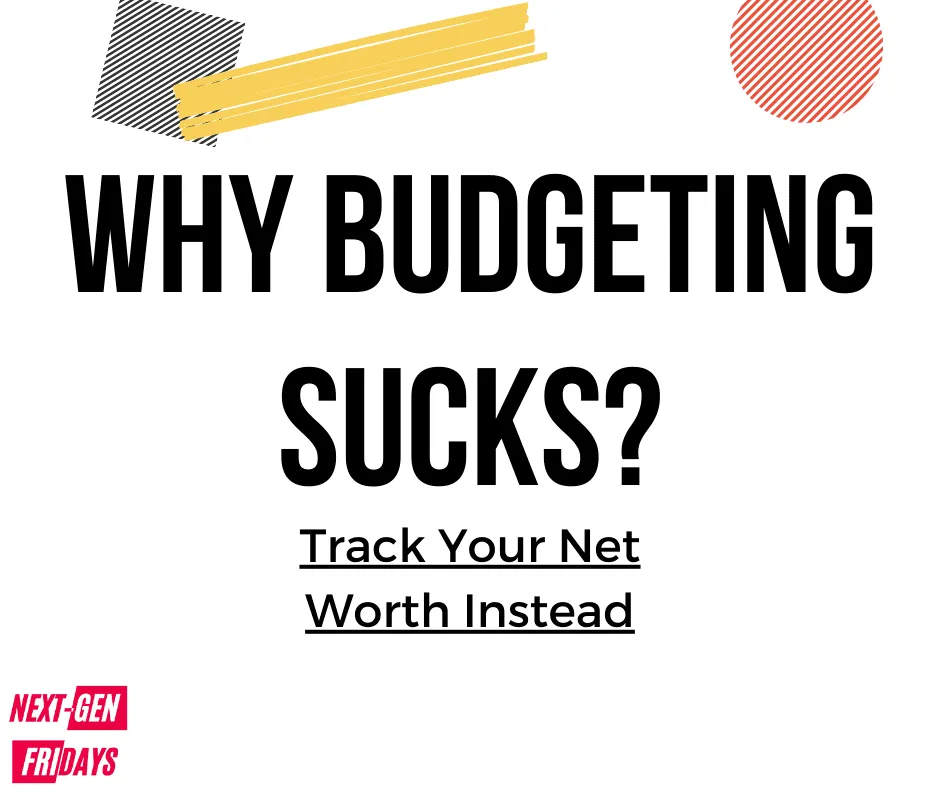Why Budgeting Sucks? Track Your Net Worth Instead
The Main Categories
Net worth is the total value of everything you own, minus everything you owe. It’s the sum of all of your assets and liabilities. It’s a powerful metric to use in terms of planning and tracking your financial journey and managing your money.
If you are serious about managing your own personal finances, I have a free downloadable spreadsheet that you can use. This is the same one that I use to manage my own money.
Why Track Your Net Worth
The reason why you want to track your net worth is that it helps you understand where you stand financially. You want to know if you’re making positive or negative gains.
Using a net worth spreadsheet is one of the most significant methods to assess your entire financial health. It’s about taking a step back and looking at the big picture of your finances.
Your net worth analyzes everything rather than focusing on just one thing.
On a personal level tracking my net worth monthly in a spreadsheet made it easier for me to pay off my debt. Seeing the liabilities section go down month after month motivated me to bring it down to 0!
How do you keep track of your net worth?
The simplest way to get started is to pull out all your statements and organize them into an assets pile and a liabilities pile. Once a month you will add up all your assets and liabilities.
What is the difference between an asset and liability?
A liability is something a person or company owes, usually a sum of money. Liabilities are settled over time through the transfer of economic benefits including money, goods, or services. (Investopedia)
An asset is a resource with economic value that an individual, corporation, or country owns or controls with the expectation that it will provide a future benefit. (Investopedia)
Simply put assets put money in your pocket, liabilities take money out.
What to Include in Your Net Worth?
When it comes to calculating net worth, everyone has a different opinion on which assets to include. For assets you will want to include:
- Cash
- Bank accounts
- Investment properties (property in your name where the cash flow is greater than your mortgage)
- Investments (gold, stock, crypto, wine, retirement fund, etc.)
- House (only if paid in full. Mortgage = debt)
As for liabilities, it is pretty simple. If you owe money towards it then add it. For liabilities you will want to include:
- Credit cards
- Car payments
- House/Condo Mortgage (I don’t care what you say, as long as you’re paying the bank monthly it’s a liability)
- Rent
- Credit line
- Taxes you owe
Using the Net Worth Spreadsheet
My goal is that the spreadsheet is easy to use. You can change the row labels to match your account. The colourful rows at the bottom are all preset with a formula to take the thinking out.
Watch the video, download your copy of the spreadsheet and stay on top of your finances. If this helped or have any questions, leave a comment below.

